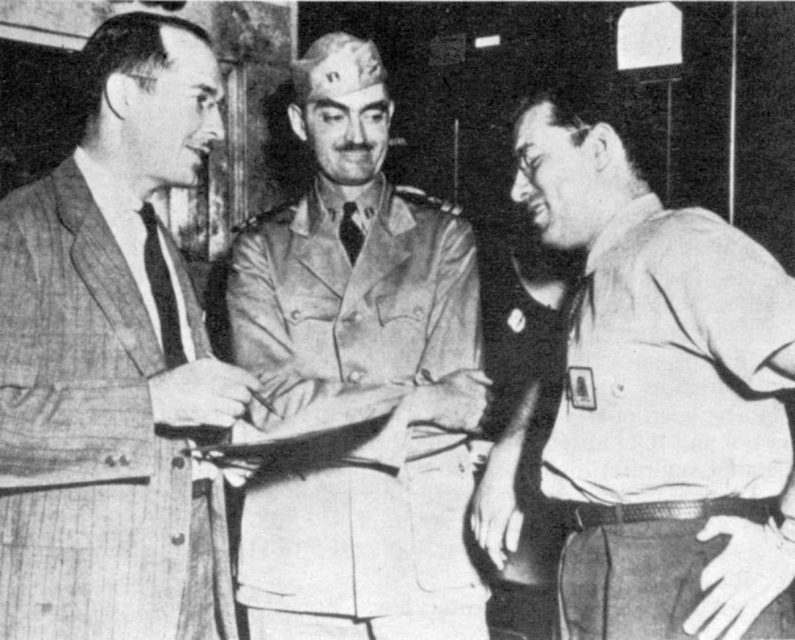It’s probably the centenary year for the late Isaac Asimov, but the date is only approximately correct:

Robert Heinlein, L. Sprague de Camp and Isaac Asimov at the Philadelphia Navy Yard in 1944.
US government photo via Wikimedia Commons.
In actual fact the centenary is a bit of a fudge because Asimov never knew his actual birthday and picked January 2 as a likely date, and one that allowed for an extra holiday after the Christmas festivities. He was born around the turn of the year in 1920, three years after the Russian revolution, in the Soviet town of Petrovichi, although he emigrated to the US at the age of three.
Like many Russian Jews the family moved to Brooklyn in New York, and Asimov’s father ended up running a confectionery store and newsagent. Asimov taught himself to read at the age of five and taught his sister too, and consumed the pulp science fiction magazine stocked in his father’s shop.
At the age of 15 he applied to Columbia but was rejected, ostensibly on age grounds but, as he wrote in his autobiography I, Asimov, he recounted that the university had filled its quota of Jews for the year. After multiple rejections he eventually earned his Master of Arts degree in chemistry in 1941 and earned a Doctor of Philosophy degree in chemistry in 1948, serving as a civilian in the US Army in the Second World War.
An academic career beckoned and in 1949 he joined the Boston University School of Medicine as a biochemistry teacher. But by then he had already been getting science fiction short stories published for nearly ten years. In 1950 he wrote his first book and largely abandoned his teaching career, finding writing more lucrative and enjoyable.
[…]
Some thought Asimov had peaked as a science fiction writer by the mid 1960s, as he spent the next few years writing a lot of popular science books, non-fiction and school textbooks. He was even asked by Paul McCartney to write a science fiction musical for his then-band Wings, although the idea was eventually dropped.
But in the 1970s he came back into the SF fold with a series of books and short stories, winning two Hugo and two Nebula awards in the decade. He was also involved in some television and film work, having acted as a consultant on Star Trek in the 1960s.
In 1981 he was approached by a publisher to return to the Foundation series and add more to the canon. Foundation’s Edge was published the next year year, to wide acclaim. This was followed by Foundation and Earth in 1986, Prelude to Foundation in 1988, and finally Forward the Foundation, which was published in 1993, one year after Asimov’s death.



